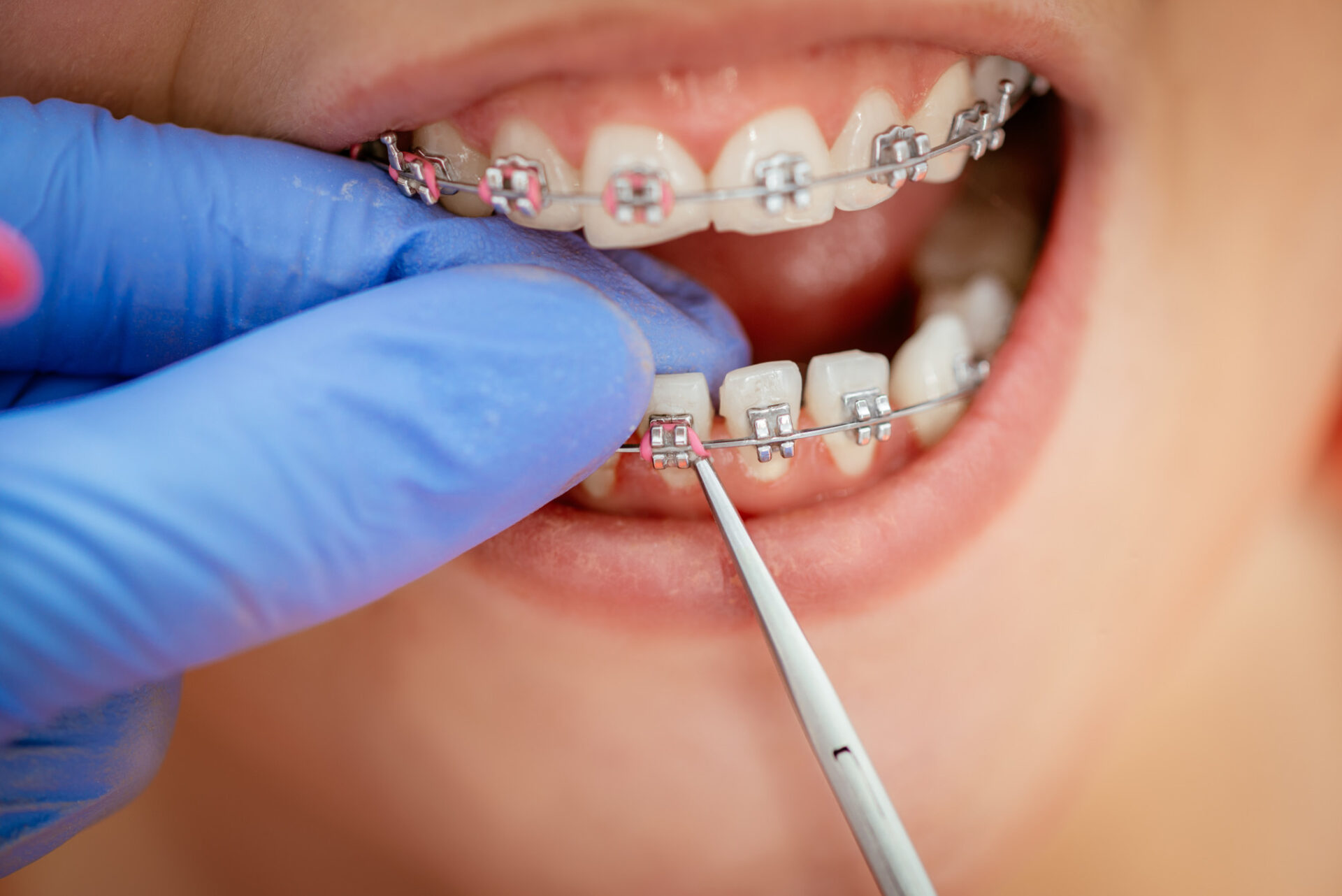
Posted on February 18, 2021

Metal braces have helped patients renew their smiles for decades. Today, over 4 million Americans are using braces to straighten their teeth. Despite how common braces are, not everyone knows how to care for them.
If you don’t take proper care of your teeth and braces, your teeth could look worse than they did before you started treatment.
Here are the seven essential care tips you need for your braces. With these tips, you can straighten your teeth and keep them squeaky clean.
Brighten your smile by learning how to clean your traditional metal braces today!
The toothpaste and brush you’ve used for years might not prove enough to keep your metallic braces clean. Instead, talk to your orthodontist. They can tell you which toothpaste, mouth rinse, and floss are best for your teeth.
It’s important to find tools that will eliminate bacteria before it can develop into plaque. Plaque is a sticky film that can cling to your gums and braces. If you fail to brush plaque away, it could harden into tartar.
Your dentist will need to clean the tartar away for you. Otherwise, you could develop gum disease.
About six out of 10 teenagers suffer from gingivitis. Symptoms can include tender or receding gums, bad breath, or swollen gums. The gums might bleed when you floss or brush, too.
Talk to your dentist about the tools you need. For example, they might reveal that your toothpaste includes harsh, abrasive ingredients that could damage your metal braces.
Meanwhile, you’ll need a floss that will fit between your teeth and along the wire.
Make sure to avoid mouthwashes that include red or green dyes. These dyes could discolor your metal braces. They could even remove the elastics.
Using the oral hygiene tools your orthodontist suggests can help you avoid damaging your traditional metal braces.
How you brush your teeth will need to change when you’re cleaning metal braces, too. First, make sure to use caution. Otherwise, you might break a metal wire or dislodge one of your brackets.
Meanwhile, lingering food particles could still cling to and between your teeth.
Look for a brush that has soft bristles. Switching your brush can help you avoid harming your braces. When you brush, use gentle pressure as well.
When brushing your metallic braces, make sure to:
After meals and snacks, try rinsing your mouth out with water. Rinsing your mouth out will help remove food particles, even when you can’t brush your teeth right away.
Don’t forget to floss! Now that you have your new floss, you’ll need to use it at least once a day. Otherwise, you could leave food particles trapped between your traditional metal braces.
Flossing regularly can help you avoid problems like bad breath, tooth decay, and gingivitis.
First, consider using floss thread or floss picks. Take a long section of the thread to reach the teeth in the back of your mouth.
When you floss, stand in front of a mirror and clean each tooth one by one.
Slip the floss under your wires or between your teeth. Avoid tugging on the floss while it’s under a wire. You don’t want to hurt yourself.
If you pick up food particles with your floss, use a different part of the floss thread. Clean away all food debris. Then, rinse your mouth out with water to remove any debris that’s now loose between your teeth.
You might want to consider caring floss with you throughout the day. If food gets stuck between your teeth or braces, you can clean it instead of letting it linger.
You might want to talk to your orthodontist about investing in an oral irrigator.
You can fill the irrigator with water before using it. Then, lift the wand to your teeth. This wand will emit water at a moderate pressure.
Placing the wand between your teeth will help remove food particles, plaque, and bacteria from your metal braces.
Use the oral irrigator in addition to brushing and flossing.
Your body requires a balanced diet, especially when you’re wearing metallic braces. Once your metal braces are in, talk to your orthodontist about the foods you’ll need to avoid. Avoiding these foods can help you limit potential damage to your metallic braces.
These foods include:
Instead, choose soft foods. If you start experiencing discomfort from your braces, consider foods like:
Pain and discomfort are normal in the days after you receive your braces or have them tightened. Eating softer foods can help you avoid breaking your braces or causing additional pain.
Always listen to your orthodontist’s instructions about maintaining and cleaning metal braces. Their advice can ensure you don’t experience any setbacks with your treatment.
For example, your orthodontist might advise you to avoid contact sports during the course of your treatment. If you get hit while wearing braces, the brackets could cause damage to the inside of your mouth.
Some orthodontists mold mouthguards for their patients instead.
Otherwise, avoid using your teeth as a tool. For example, you shouldn’t use your teeth to bite open a bag or pry off a bottle cap. Otherwise, you could cause damage to your teeth and braces.
Listen to your orthodontist’s instructions and keep up with your appointments.
Ready for the stunning smile you’ve always wanted? Keep these tips for maintaining and cleaning metal braces in mind. With these tips, you can keep your teeth and braces squeaky clean!
Keeping your braces clean can help you avoid potential gum diseases or tooth decay in the future.
Ready for your first appointment? We can’t wait to see you.
Fill out these new patient forms today to get started.